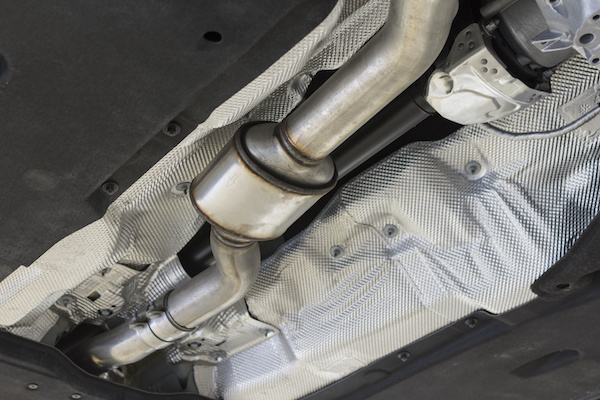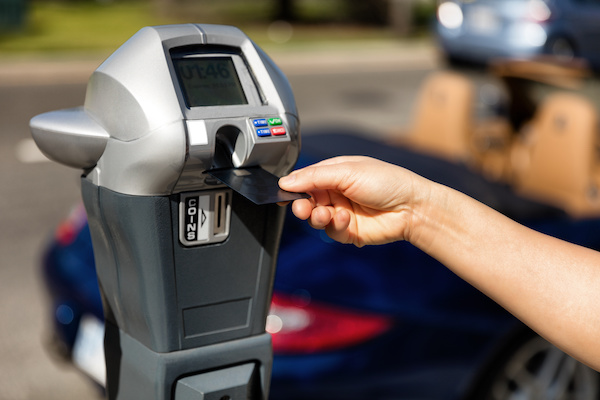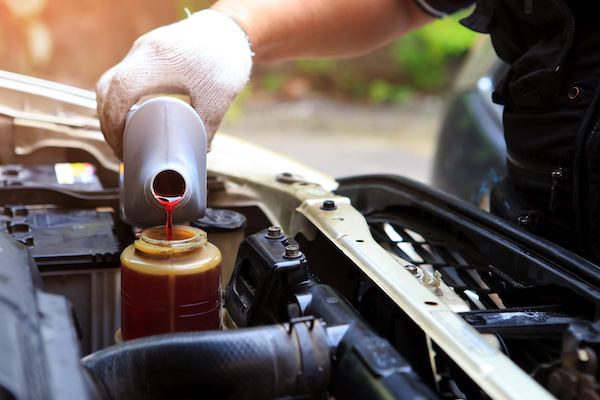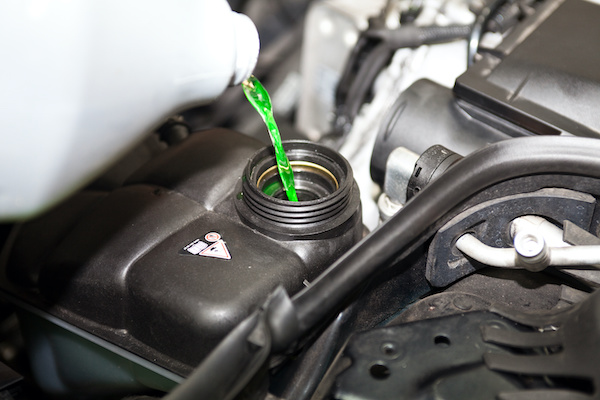Posted on 11/19/2021

Happy Thanksgiving from our entire team at The Model Garage! For this holiday, we are not only thankful for our friends and family, but we are thankful for you all. With Thanksgiving, Christmas, and more coming up, it means lots of travel. If you are planning a road trip to visit your loved ones far and near, we highly urge you to come by our shop for a check-up before you hit the road. Here are five tips to remember when traveling for the holidays! Don't forget to pack ample blankets, coats, socks, hats, gloves, etc., for the road to keep you warm if you're traveling to colder places. Pack an emergency kit in your trunk just in case of emergencies. Some things to include in that kit are a spare tire, jack, wrench, flashlight, batteries, road flares, cell phone charger, jumper cables, and first aid kit. What's a road trip without snacks? Besides your cold-weather gear and emergency kit, please make sure you pack plenty of water and some snacks. This can curb ... read more
Posted on 10/18/2021
.jpeg)
Many people take the reliability of a car's electrical system for granted until your car doesn't start. Without a battery, the ignition and starter would have no capability to crank the engine. Even after your vehicle starts, the battery continues to provide electrical charges to power the car's electrical systems. While you may think batteries are straightforward, many misunderstandings exist about their function, maintenance, and purpose. Today, we're here to lay it all out and set the record straight. Myth #1: Hot weather isn't as bad on batteries as cold weather. Both hot or cold temperatures can negatively affect the liquid solution that holds a charge in the battery. Both extremes significantly lower performance and leads to premature wear. While batteries won't freeze in frigid temperatures, it will also limit the battery's ability to work at full power. Ho ... read more
Posted on 9/20/2021

Your vehicle comprises various systems that are all very complex. Your vehicle is made of 30,000+ parts after all. Your vehicle's exhaust system is one of those systems. Today, we will do a deep dive into your exhaust system and discuss its essential parts and their functions. If you haven't noticed by now, your vehicle emissions all start at the engine. Various gases sit in the combustion chamber that needs to get ejected out of your car eventually. The exhaust system is responsible for moving gases throughout your vehicle and converting harmful fumes into breathable vapors before releasing them into the air. The overall system comprises multiple pipes that work simultaneously to lessen the output of harmful pollutants. The parts involved in the intricate process of moving gases include the exhaust manifold, catalytic converter, oxygen sensor, tailpipe, muffler, and resonator. The exhaust manifold is involved at the beginning of the process. The manifol ... read more
Posted on 8/13/2021

Whether you live in a populated city or you're just visiting one, chances are you're probably going to end up digging for coins to fish to a parking meter. This is the last thing you want to be doing is to be welcomed with a parking ticket on the way back to your car. You might wonder who was cruel enough to invent such a thing anyway. When and why did the parking meter come to be? In 1935, a guy by the name of Carl C. Magee established the history of the first paid parking meter and originally called it the "Park-O-Meter." Magee had migrated from New Mexico and relocated to Oklahoma City in 1927. His occupation was in news reporting in Oklahoma City. During this time, growing urban cities experienced a lack of public parking, and Oklahoma City was no exception. He proposed a solution in the form of the Park-O-Meter, and the town accepted. They began installing Park-O-Meter on the southeast corner of what was then First Street and Robinson Avenue. The parki ... read more
Posted on 7/13/2021

We've all been a victim of this before-belting out our favorite songs in the car. Whether it's to make the commute to work a little less tiring or kicking off a road trip with a karaoke session, it should be a part of your driving routine. Aside from pure entertainment, did you know that there are health benefits to singing in the car? Here are the reasons why we encourage you to sing along to your tunes every time you get behind the wheel: Singing is Excellent for Cardiovascular and Lung Health When singing, you engage your throat, lungs, diaphragm, and abdomen. Singing is considered a therapeutic activity for individuals with asthma or bronchitis. You are essentially improving your cardiovascular health while having fun with your vocals. Singing often also helps you develop better breathing control and means you habitually take deeper, slower breaths. It can be good for anxiety as well as your general mental health. Singing Boosts Your Immune System Singin ... read more
Posted on 6/23/2021

If you aren't checking your car's fluids, then you might want to start setting reminders to do so. Similar to the water we drink, your car needs these six fluids to stay alive and moving. If these aren't routinely topped off, your vehicle is at risk of decreased performance, gas mileage, and value, as well as increased risk of a breakdown or accident. What are the 6 Essential Fluids? The six essential car fluids you should regularly check are engine oil, transmission fluid, brake fluid, coolant, power steering fluid, and windshield washer fluid. ENGINE OIL Motor oil is the most critical fluid, as its primary function is to lubricate and protect the engine's parts from heat and dust. Before even thinking about checking your oil, you must know the type of oil your vehicle requires. This information is usually found in the owner's manual. There are three types of engine oil: conventional, semi-synthetic, and synthetic. TRANSMISSION FL ... read more
Posted on 5/18/2021
.jpeg)
Your vehicle is a complex machine comprising closely functioning components. Scheduled inspection and maintenance of these vehicle components are vital to optimum driveability, safety, and improved fuel efficiency. This timely inspection and maintenance visit is called "tune-up." Sometimes a car tune-up is solely about check-up of vehicle systems whereas, in other cases, it might involve repair or replacements of malfunctioning parts to keep the vehicle in good shape. These repairs or replacements become necessary when your vehicle displays unusual signs or abnormalities in normal functioning, prompting the driver to bring it in for a tune-up. Here are some of these signs that would indicate a deviation from normal vehicle operations: Difficulty in starting the engine A hard start could indicate an array of underlying problems ranging from battery issues, ignition or fuel system faults, or a malfunctioning electrical component or a spark plug. A vehicle tune-up can diagno ... read more
Posted on 4/23/2021

There are many possible causes of a car stall including engine problems, electrical issues, or battery issues. When it comes to electrical problems, most of the time, it happens because of the failure of electrical connectors. The moment you notice the symptoms, you must immediately replace them. It might be a simple problem but it could also lead to major damage if not rectified right away. Occasionally, stalling is caused by mechanical problems with your car. Although it is easy to identify the cause, it is advisable to take your car to an auto mechanic so that you can have it checked thoroughly. You can also have a look inside your car and see whether there is a loose switch or other loose parts that might be causing the problem. If it is a loose switch or a screw inside your car, it might need replacement but your local mechanic should be able to diagnose the problem quickly. It is quite possible that when your car stalls it has something to do with the battery. In this case, you ... read more
Posted on 3/16/2021
.jpeg)
Have you ever come across an unusual odor in your car, and you had no idea where it came from? Maybe the first thing you did was checking under your seat for an old food bag but didn't find any. The stinky smell emanates from your engines caused by something mechanical and could lead to expensive repairs when neglected. You should always pay attention to every scent in your car as each has an indication. Below are some unusual vehicle smells and what they indicate. Rotten Eggs A smell similar to rotten eggs indicates that there's a malfunctioning part in the fuel system. Maybe your catalytic converter may not correctly process hydrogen sulfide in the exhaust into sulfur dioxide, hence the smell of rotten eggs. Burnt Oil When you encounter this smell, the first thing to do is to check your oil dipstick. A burnt oil smell shows that you are running out of engine oil or the engine is overheating. Also, it could indicate an oil leak onto the engine block or exhaust manifold. M ... read more
Posted on 2/18/2021

Your car contains different fluids that help run it. Over time, these fluids get depleted or even collect contaminants. The pollutants may slow down the vehicle's performance; thus, regular fluid servicing is essential for a safe driving experience. During fluid servicing, the mechanic might recommend flushing out the fluids and replacing them with new ones. The entire system is then cleansed with water or specialized cleaning fluid to eliminate any grit or grime built up over time. Some of the fluids in your car include; Transmission Fluid Some mechanics recommend changing the transmission fluid every 60,000 to 100000 miles. However, this is also determined by the type of vehicle you are driving, so you have to make sure you follow the manufacturer's recommendations unless you detect some issues. Brake Fluid Brake fluid exchanges are rare but critical if moisture enters the braking system and causes it to rust. If the fluid overheats, it ... read more